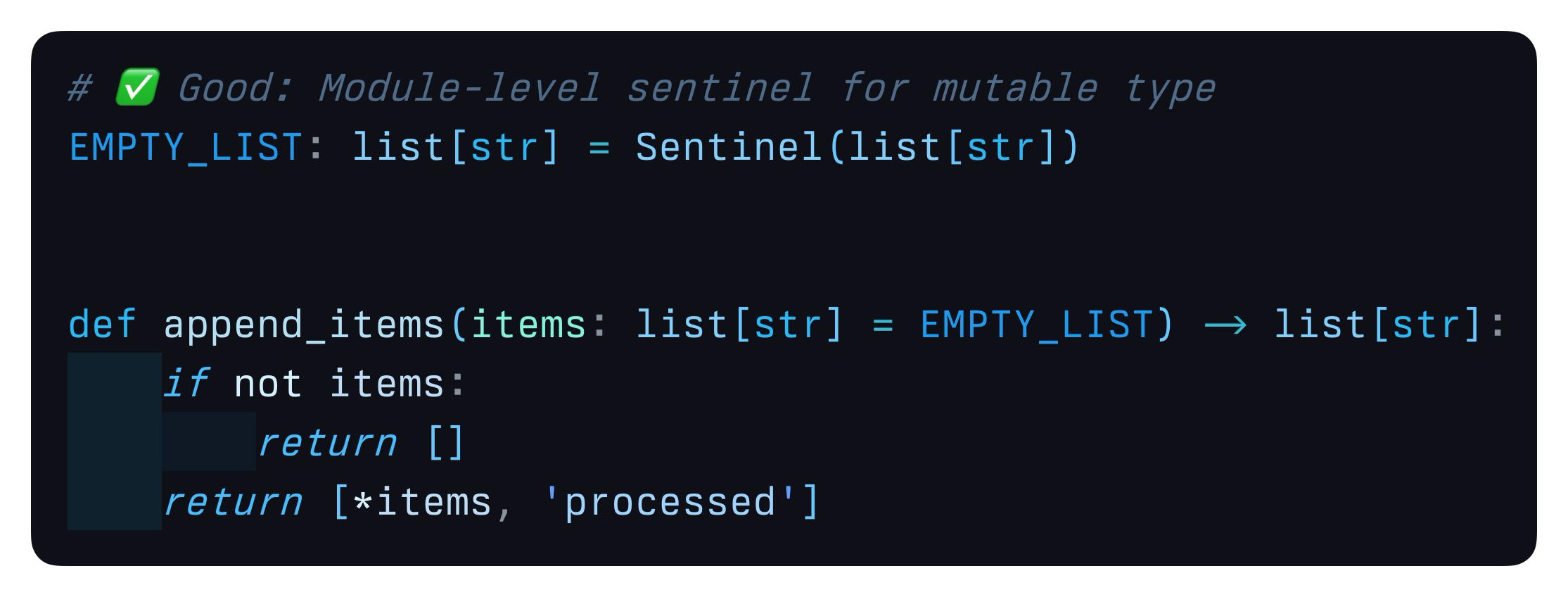Best Practices¶
Linting and Code Quality¶
Avoiding Ruff B00N Warnings¶
When using mutable types as defaults, linters like Ruff will warn about mutable default arguments.
Sentinels provide an elegant solution:
❌ Incorrect: Direct Mutable Default¶

# Triggers Ruff B006: "Do not use mutable data structures for argument defaults."
def append_items(items: list[str] = []) -> list[str]:
items.append('new_item')
return items
Also problematic: Inline Sentinel creation. This is because Sentinel(list[str]) is seen by the type-checker/linter
exactly the same way as the example above - in-line [] or list() as the parameter default:
# Triggers Ruff B008: "Do not perform function call `Sentinel` in argument defaults; instead, perform the call within
# the function, or read the default from a module-level singleton variable."
def append_items(items: list[str] = Sentinel(list[str])) -> list[str]:
if not items:
return []
return [*items, 'processed']
✅ Correct: Module-Level Sentinel¶

from typed_sentinels import Sentinel
EMPTY_LIST = Sentinel(list[str])
def append_items(items: list[str] = EMPTY_LIST) -> list[str]:
if not items:
return []
return [*items, 'processed']
This is actually fine due the immutability of our tuple here - No complaints! Though, unlesss you have a
specific reason to do it this way, keep in mind you are going to incur the (likely negligible) overhead of the
Sentinel() call every time your function is invoked.
def add_to_tuple(items: tuple[str, ...] = Sentinel(tuple[str, ...])) -> tuple[str, ...]:
if not items:
return ()
return (*items, 'processed')
print(append_items()) # -> []
print(append_items(['item1', 'item2', 'item3'])) # -> ['item1', 'item2', 'item3', 'processed']
print(add_to_tuple()) # -> ()
print(add_to_tuple(('item1', 'item2', 'item3'))) # -> ('item1', 'item2', 'item3', 'processed')